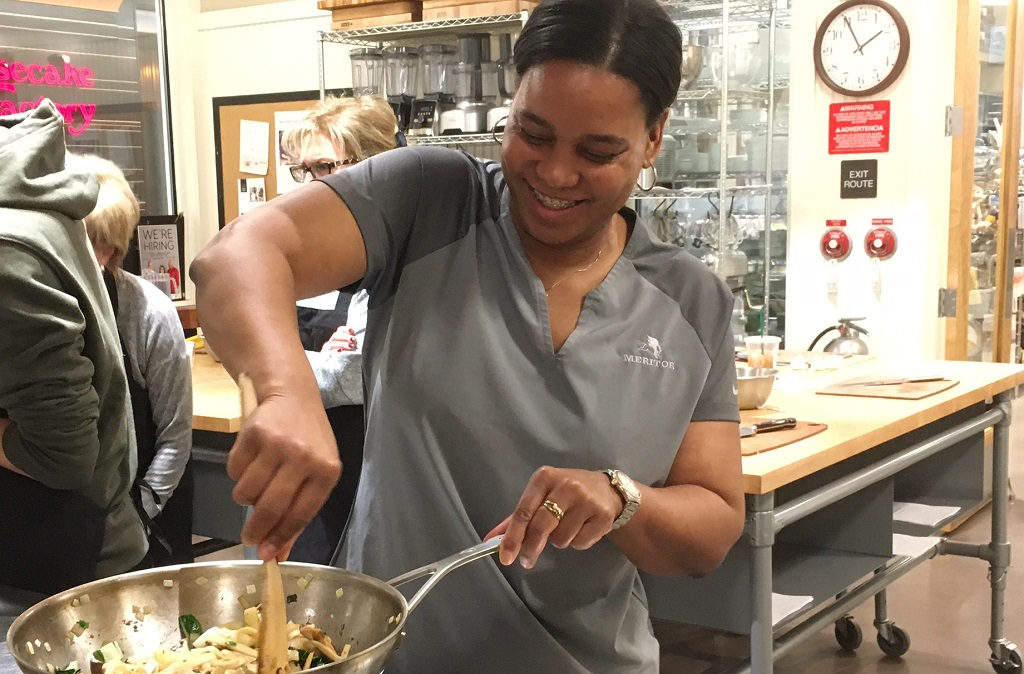Adding a cooking class to your travel adventures can help deepen your understanding of a country and its culture in a delicious way! Learn to steam sticky rice in a thatched hut in Laos…cook hand-patted tortillas on a wood-burning stove in Central America…or perfect lamb chops in a chic apartment in Paris. And, with recipes in hand, you can re-live the experience once you return home. You can even find classes close to home that instruct on global cuisines. The possibilities are endless.
Here are some things to consider before scheduling a class:
- Research. On-line searches can help you find classes almost anywhere in the world. Use the reviews to identify those that will best meet your interests, skills and schedule. If you’re with a tour group, ask your guide to recommend classes that will fit into your free time. Likewise, the hotel concierge or local tourist information office can help. Keep in mind that some popular classes fill up quickly and may need to be booked well in advance.
- Skill level. Don’t despair if your cooking expertise is limited to boxed mac and cheese. Many recreational classes give step-by-step, hands-on instruction. Alternatively, if you’re looking to take your souffle skills to new heights, you’ll likely be bored in a class that focuses on the basics. Check out the class description to see if it fits your skill level, or if any prerequisites are required. Even if you’re confident in the kitchen, don’t dismiss a class because some of the skills may seem basic. One of my favorite classes included techniques for making soup stock—which I’ve done many times. But it also gave me invaluable one-on-one time with the chef so I could perfect a roux and hone my knife skills.
- Demonstrations vs. classes. One of my pet peeves is finding out a cooking class is actually just a demonstration. Sure, the chef may ask a volunteer to chop garlic or take a turn kneading dough…but the really interesting stuff gets done while you just sit there and watch. The best way to learn is to roll up your sleeves and dig in. However, if you’re skittish about participating, a demonstration could be a good alternative.
- Language barriers. Don’t pass up an interesting class because it’s not taught in English. You’ll be amazed at how much you can learn by pointing, nodding and mimicking your host’s actions. Take good notes and lots of photos if you want to make the dishes again. Food is truly a universal language.
- Armchair travelers. If travel’s not in your future, don’t despair. You may be able to find interesting classes close to home. Some kitchenware retailers and upscale markets offer hands-on opportunities to create seasonal recipes, dabble in international cuisine or learn fun new techniques. Many bed & breakfast establishments also offer interesting classes featuring local specialties.
Bottom line: Fresh ingredients, regional food experts and the camaraderie of like-minded travelers make for one-of-a-kind memories. Seize the adventure!

